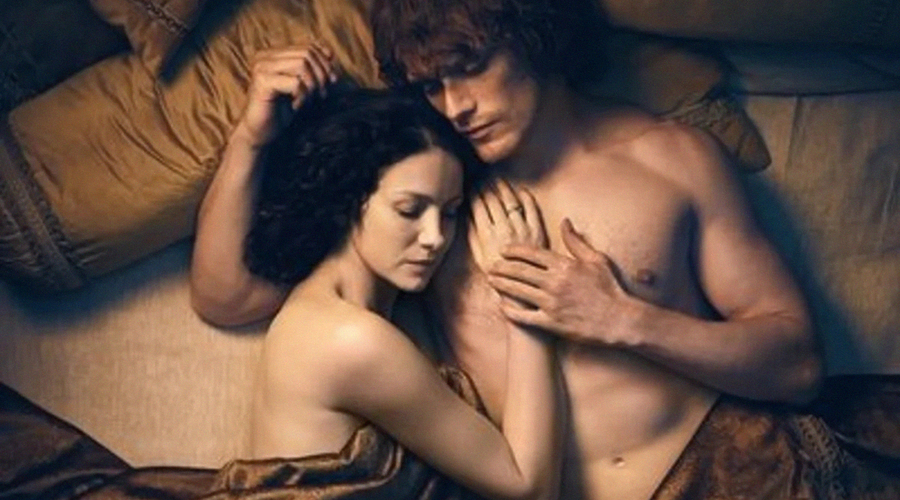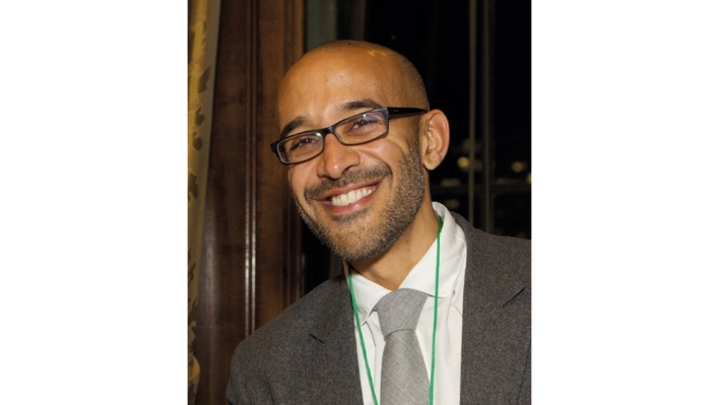The RTS learns how intimacy co-ordinators are helping actors feel comfortable when they shoot TV sex scenes
When the credits rolled in 2018 for the second series of The Deuce, HBO’s series about the porn industry in 1970s New York, a job title appeared for the first time on screen– an “intimacy coordinator”. This was a landmark moment for television, instigated by actor Emily Meade in the wake of the Harvey Weinstein scandal.
The break from the norm was particularly needed because of the show’s content and, as Meade pointed out soon after: “The process of doing [sex scenes] in a television show is very different from in a film, because you don’t have it all laid out when you sign on, and each episode is a new script and a new sex scene; you don’t have nearly as much time to process and prepare.”
Cut to four years later, and the role is mandatory in all HBO series containing intimate scenes, and standard practice on other networks in the US. On this side of the pond, notable productions that have made use of this emerging role include Sex Education, Normal People and I May Destroy You.
The job of an intimacy co-ordinator is to prepare and choreograph scenes of a sensitive nature – ones that involve nudity or sexual content, from kissing to sexual violence.
This was the topic of a recent RTS event, “Getting intimate: The evolution of the intimacy co-ordinator”, featuring actor Jessica Reynolds and Vanessa Coffey, who is known for her work as an intimacy co-ordinator on Outlander, Vikings: Valhalla, Rules of the Game and War of the Worlds. Before The Deuce, said Coffey, “different people were responsible for different [aspects of the job]. What I hope we do is bring it all together in that co-ordinated approach.” She added: “The choreography wasn’t previously done at all. It was like, ‘Let’s just put the camera on it and let’s see what happens.’ Whereas now, the closest analogy is to a fight director or to a stunt co-ordinator. We would never ask an actor to just walk towards somebody else with a knife and say, ‘Let’s just see what happens.’ It’s the same thing for us.”
In 2017, a student asked Coffey –who had formerly been a lawyer, an actor, a movement director and then a lecturer – to help liaise with the director on a planned nudity scene. Her varied background came in useful, and that brought her into the world of intimacy co-ordination.
Although at that time the Weinstein scandal was raising awareness of sexual exploitation in the film industry, the issue had been present on sets for decades. The most notable instance was in 1972’s Last Tango in Paris, in which actor Maria Schneider was sexually humiliated by a surprise change as the cameras rolled, which was planned by co-star Marlon Brando and director Bernardo Bertolucci. “A sexual assault 100% did happen on that set”, said Coffey in no uncertain terms.
"She’s ultimately getting the actors to get to the most comfortable place that they can, to perform in the best way that they can.”
For most actors working on projects containing intimate scenes, the lack of intimacy co-ordinators often meant a lack of sensitive direction, discomfort, and an overwhelming pressure to do what was asked of them, said Coffey.
Reynolds, who plays Malva Christie in Outlander, agreed with Coffey’s point that actors are trained to say yes to directors: “The success rate of even getting a job is so small, so if you get that job, especially when you’re young or coming out of drama school, you’re just like, ‘I’ll do anything.’ It’s why so many things in the past have gone uncovered, hence Weinstein. If it’s been your dream since you were a child, it’s very easy to fall into the trap of saying yes.”
But in this changed climate, and one with a greater emphasis on mental health, Reynolds said intimacy co-ordinators should be mandatory on sets featuring intimate scenes.
She noted that the change is often seen in a negative way, but intimacy co-ordinators such as Coffey are not there to dictate what happens. “She’s there to go, ‘What do you need here? Let’s both come to an agreement’ –because no one has done that in the past. She’s ultimately getting the actors to get to the most comfortable place that they can, to perform in the best way that they can.”
In practical terms, the job of an intimacy co-ordinator is to manage the intimate scenes from conception to post-filming. Ahead of filming, Coffey liaises with showrunners, directors and actors to ensure that each is prepared and agreed on how the scene should play out. Even with a simple kissing scene, it gives the “opportunity to map things out and make sure that the actors are comfortable with where hands are going – how long a kiss is held for, what size of shot it’s going to be in, how many shots there are going to be on the day”.
It is also her job to ensure that the actors involved are aware of each other’s needs, whether that means avoiding a pesky cold sore or a triggering boundary. She also liaises with departments, including costume and hair and make-up, to ensure that everyone is on board with the vision.
While filming is going on, she is there to ensure all goes as planned – and in case an actor changes their mind, though that situation hasn’t arisen yet. “I hope, or think, the reason it hasn’t happened so far is because we have been able to have those really open conversations beforehand,” she said.
For Reynolds, having Coffey as an intimacy co-ordinator on the set of Outlander “took all the yuckiness, the taboo” out of the experience. “For the people who can’t speak up, she is there to be a voice and to settle you. Now, going forward, I’m praying there will always be an intimacy co-ordinator.”
As yet a relatively new role, it is still in flux. Men, for example, are entering the fold. “There are not that many, but there are a few, and they are really wonderful,” said Coffey. “If you’ve got an empathic person, I don’t see the difference between you having a male or a female intimacy co-ordinator; it’s just who’s going to be best for that particular job.
Responses to the role are also changing. Coffey said that younger actors, having grown up in a more communicative environment, “are much more vocal about saying: ‘This is what I need.’ They also recognise that sometimes those [discussions] are needed for kisses. That is not something I’ve ever experienced from an older, experienced actor, even if they haven’t had a lot of intimate scenes.”
In the near future, she predicts that the remit of intimacy co-ordinators may well expand to include all types of sensitive scenes. “I’ve been called on for things such as torture scenes before, where someone had to imagine their fingers being chopped off,” said Coffey. “They were in a very vulnerable place for approximately six hours of shooting the scene. That actor talked about knowing rationally that she was not being tortured, but that her body didn’t. We’ve got a process to help them de-role from that.
“Ultimately, we’re going to see the rise of a wellbeing co-ordinator. And not just for cast, I think we’ll also see it for crew. Because the crew also experience these scenes over and over again, and sometimes we forget about their mental health within this.”
Report by Shilpa Ganatra. ‘Getting intimate: The evolution of the intimacy co-ordinator’ was an RTS event held on 4 July. It was hosted by journalist Caroline Frost and produced by Lily Hawkins at Premier Comms.







